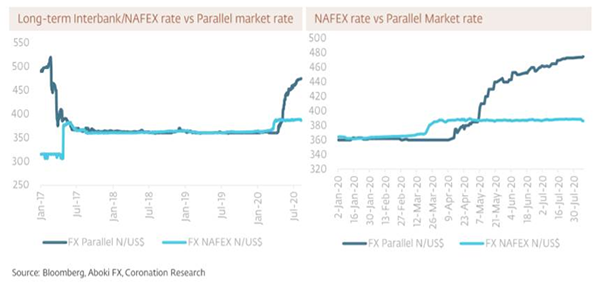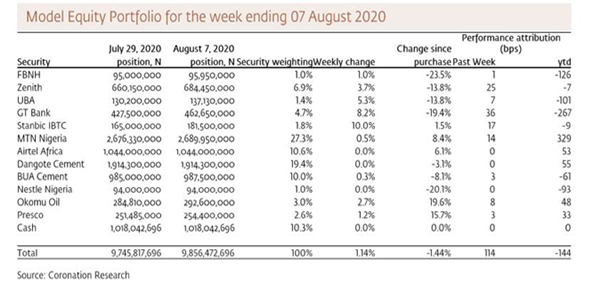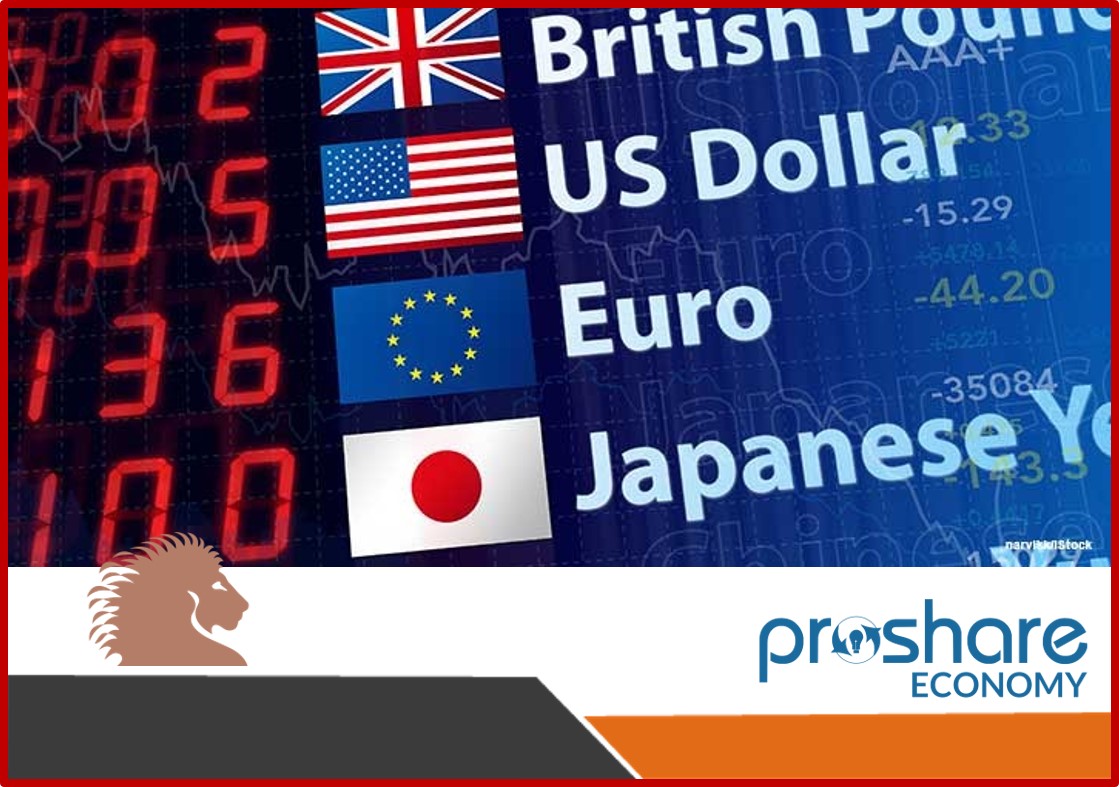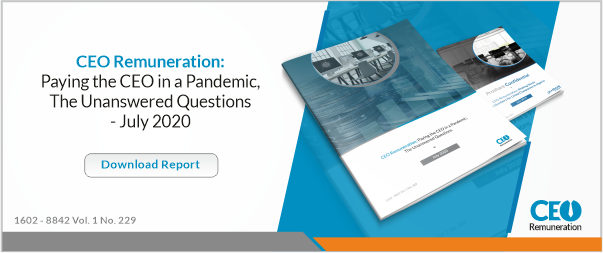Tuesday, August11, 2020 / 4:31 PM / Coronation Research / Header ImageCredit: fm-magazine
Last week we received a lot of questions about theforeign exchange markets. Was the World Bank forcing the Nigeria's hand indemanding unification of all exchange rates? Why was the parallel market ratenot weaker? We do not know the inner workings of the World Bank, nor about itsdialogue with Nigeria's monetary authorities. But we do have an explanation forwhat is happening in the FX markets. See page 2 for details.
FX
The foreign exchange reserves of the Central Bank ofNigeria (CBN) recorded a slight decline last week, dipping by US$198.91m toUS$35.67bn (which represents a one-month moving average). The CBN, to furtherunify all exchange rates, moved the official rate for the second time this yearfrom N360/US$1 N380/US$1 last week. This brings the official rate closer to theNAFEX rate (which closed at N386.23/US$1 last week) and the SMIS rate (whichclosed at N388.23/US$1 last week). Although it was reported that the CBN wasunder pressure from the World Bank (see page 2) to amend its FX managementpolicy, the World Bank approved a loan of US$114m on Friday to help in thestruggle against Covid-19. We do not see an immediate change in policy but wethink the Naira will continue to come under pressure in the parallel marketwhere it trades at N475/US$1.
Bonds & T-bills
Last week the secondary market yield for a FederalGovernment of Nigeria (FGN) Naira bond with 10 years to maturity increased by105basis point (bps) to 9.08%, and at 3 years decreased by 2bps to 3.90%. Theannualised yield on 307-day T-bill decreased by 1basis point (bps) to 2.95%while the yield of a CBN Open Market Operation (OMO) bill with similar tenureincreased by 1bps to 4.56%. Our sense is that some pension fund administrators(PFA) required liquidity last week and that their selling contributed toprofit-taking. On the other hand, and with redemptions from open marketoperation (OMO) bills due to increase liquidity in September, we think the marketmay stabilise going forward, even though the mark-to-market risks (see NigeriaWeekly Update, last week) are rising.
Oil
The price of Brent crude increased by 2.54% last weekto US$44.40/bbl. The average price, year-to-date, is US$42.36/bbl, 32.73% lowerthan the average of US$64.20/bbl in 2019. Last week, oil prices recorded gainsas Iraq, a member of the Organisation of Petroleum Exporting Countries (OPEC),disclosed that it would pare its oil production by 400,000bpd in August andSeptember to compensate for its overproduction in the last three months. Also,a weakening US dollar further supported the rally in oil prices. We expectprices to be firm going forward.
Equities
The Nigerian Stock Exchange All-Share Index (NSE-ASI)increased by 1.41% last week. The year-to-date return is negative 6.71%. Lastweek Flour Mills (+13.20%), Seplat (+12.83%), Stanbic IBTC (+10.00%), GuinnessNigeria (+8.48%) and GT Bank (+8.22%) closed positive, while Ardova Oil(-9.67%), Unilever Nigeria (-8.57%), International Breweries(-4.55%) andDangote Sugar (-0.42%) closed negative. Sectoral performance was positive withthe exception of the insurance index (-0.53%). The Oil & Gas (+0.08%),Banking (+2.38%), Industrial (0.02%) and Consumer Goods (0.42%) indices all recordedweekly gains.
No Big Change in FX Policy
Three weeks ago (see Coronation Research, NigeriaWeekly Update, 20 July) we wrote about the mystery of the parallel exchangerate. Why had the parallel rate not diverged more from the NAFEX rate (alsoknown as the I&E Windows and the interbank rate)? In the absence ofsignificant supply of US dollars from the CBN to the NAFEX market (which wasdesigned, in any case, to be autonomous and not require CBN support), NAFEXturnover fell in mid-March and remains low. So we would expect demand for USdollars to hit the parallel market, driving down the unofficial price of theNaira. It has, indeed, but not very much. If we look back to early 2017 (seechart) the parallel rate was a long way from the interbank market (there was noNAFEX market at the time) - 50.9% weaker, to be precise. Towards the end oflast week the parallel market rate was 22.9% shy of the NAFEX rate, much lessof a difference.

Last week Business Day ran a story that hinted thatthe World Bank might withhold a US$1.5bn tranche of lending unless Nigeriaunifies its exchange rates, and this article prompted much debate. It remainsunclear to us whether this was - or is - the World Bank's stance, since thereis no 'smoking gun', i.e. a direct quotation of a World Bank official, nor astatement from a Nigeria official to the same effect. On the other hand, thereis credence in the idea that international development agencies such as the IMFand the World Bank oppose developing countries having multiple exchange rates,and they generally prefer a free float to a managed exchange rate.
Another explanation for state of the parallelmarket is that it is not a case of low demand for US dollars (as we argued on20 July - we put it down to the weak economy) but a steady supply of US dollarsflowing into the parallel market. This thesis is impossible to test becausethere is no data for turnover on the parallel market. It might be revealing tofind a website offering the parallel market rate as opposed to the NAFEX rate,but both those of Western Union and of Azimo, for example, are offering ratesthat essentially are the same as the NAFEX rate.
The mystery can probably be explained this way:demand for US dollars is unusually low; the parallel market is meeting a higherproportion of US dollar demand than it did in 2017.
Model Equity Portfolio
Last week the Model Equity Portfolio rose by 1.14%,compared with a rise in the Nigerian Stock Exchange All-Share Index (NSE-ASI)of 1.41%, therefore underperforming it by 27 basis points. Year-to-date it haslost 1.44%, against a loss of 6.71% in the NSE-ASI, outperforming it by 527bps.
Last week we wrote that we had outperformed theindex for five consecutive weeks and that we found this odd, given a number ofnearly market-neutral positions (e.g. Airtel Africa, Dangote Cement andBUA Cement) in our portfolio. We were almost inviting some underperformance.
In the event we underperformed on two separatecounts. First, two stocks which we generally do not favour rallied hard. Thesewere Seplat (1.58% of the index) which rallied by 12.83% and Flour Mills ofNigeria (0.61% of the index) which rallied by 13.20% over the week. Given ourinvestment approach, which is to hold stocks that we like (unless they areunavoidably a large part of the index), we must be content to suffer theopportunity cost of not holding them.

The second problem was our underweight position inbanks, which wrote up as a downside risk two weeks ago. We tried to avoidunderperformance by making (as forewarned) a notional purchase in Zenith Banklast week, but we did not go far enough in building up the notional position inbanks. Our performance attribution tells us that our decision tounderweight them back in June was a mistake. Is it too late to rectify it?
We think is worth taking the risk of increasing ournotional position in banks. Results are due soon and it seems to us that themarket has oversold at least some of these stocks (see their year-to-dateperformance) when they are likely to have preserved spreads and proved to befairly resilient earners. It is understood that their earnings will be weak, ona year-on-year comparison, but perhaps not as weak as the market expects. Weintend to increase our notional positions in FBN Holdings, UBA, GT Bank andStanbic IBTC (liquidity permitting) this week.
We also intend to increase our notional positionspalm oil and rubber producers Okomu Oil and Presco. Although the catalyst ofdevaluation has not arrived (certainly not in the NAFEX market and only slowlyin the parallel market) we note that their base prices - international palm oilprices were up 2.7% and rubber prices were up 7.1% last week - are trendingupwards.
Related News
- NOVA Economic Insights August 2020: Social Distancing Persists at the IEW and BDC Segments
- Heavy Weight of State Government Debt
- Nigeria's Average Oil Production Declined by 13.9% to 1.52 mbpd QoQ
- NESG Board Reviews State of Nigeria's Economy
- Nigeria Will Struggle as Recovery Proves Elusive - LBS Executive Breakfast Session - Aug 2020
- COVID-19 Macro Impact Report: The Macro Impact from COVID-19
- Communique and Highlights from the MACN CBI Webinar on "Corruption at the Nigerian Ports"
- Pick-up in Non-oil Exports QoQ
- The Risk in the Duration Trade
- Nigeria's Gross External Reserves: An Historical Perspective
- PMI Reading No 88: Weaker Yet Above Water
- Blended External Debt Service for the FGN
- Nigeria's COVID-19 Induced Foreign Trade Decline - PFI Capital
- An Unexpected Rise in the FAAC Payout in July 2020
- Implications of COVID-19 on Nigeria's Employment Generation
- The Mystery of the Parallel Exchange Rate
- Inflationary Pressure Likely to Decelerate in July - PFI Capital Limited
- Headline Inflation Crosses the 12.5% Threshold in June 2020
- Inflation Spikes Amid Rising Coronavirus Cases; Understanding The Numbers
Related News - Forex
- Gross Official Reserves Declined by US$320m in July 2020 to US35.88bn
- Resilience of Workers' Remittances
- Implications of CBN's Exchange Rate Unification - PFI Capital Limited
- Nigeria Agrees to Pursue Exchange Rate Unification
- Gross Official Reserves Declined by US$400m in June 2020 to US36.20bn
- A Step Towards FX Rate Unification; FX Bids New Floor Now N380
- Nigeria's Naira Slides on Official Market on Plan to Align Exchange Rates
- FMDQ Exchange Set to Engage Market Stakeholders on Combating Currency Exchange Volatility
- Nigeria's Gross Official Reserves Recovered By US$3.07bn in May 2020 to US$36.60bn
- Manufacturing: FX Shortage Starting to Bite
- Nigeria Foreign Exchange - Naira: The Price of Nigeria's Oil Fortune
- Gross Official Reserves Declined By US$1.64bn In April 2020 to US$33.52bn
 Lagos, NG • GMT +1
Lagos, NG • GMT +1











 1781 views
1781 views









 Sponsored Ad
Sponsored Ad
 Advertise with Us
Advertise with Us









